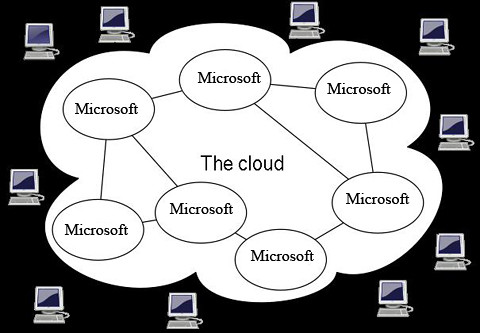(9AM EST – promoted by Nightprowlkitty)
From Scientific American…
Compassionate Coding:
Students Compete in Microsoft Competition to Write Humanitarian Apps
With the understanding that emergency, health care and other services’ reliance on software will only grow over time, Microsoft has for the past eight years hosted a global competition that challenges high school and college students to develop applications that address some of the planet’s most urgent needs.
The event’s popularity has expanded rapidly–about 325,000 students from more than 100 countries registered to compete this year. The company’s Eighth Annual Imagine Cup finals wrapped up Thursday in Warsaw, Poland, with 400 students vying for $240,000 in prize money.
As one might suspect, a prerequisite is that all competitors develop their programs using Microsoft products, including software writing tools, databases and the Windows operating system.
325,000 high-school geeks hard at work for Microsoft, for an average “wage” of $0.75.
The relatively good news appeared later…
Increasingly, students designed their software to be hosted at Microsoft’s data centers rather than on their school’s local computers. This so-called “cloud” model meant the teams did not have to worry about whether their schools had enough servers, storage devices and networking capacity to meet their needs.
This was especially important in third-world countries like Brazil, where no less than 80,000 students competed for Microsoft’s meager prize, thanks to a vast (and relatively cheap) expansion of broadband by Luiz Inácio Lula da Silva’s leftist regime, and their program includes a robust public option!
The Brazilian government’s plan to provide cheap broadband Internet across the country will shake up the big five providers, forcing them to offer a more competitive service, said Rogerio Santanna, the president of Telecomunicacoes Brasileiras SA (TBH), or Telebras, Friday.
Cloud computing means that users like you manipulate distant computers over the internet, and it’s typically compared to the paradigm shift in electric power, when backyard generators were replaced by the familiar grid that connects you to your favorite utility.
The downside of this marvelous transformation is catastrophic systemic risk, as brilliantly illustrated by the virtual absence of electric power all over Iraq, where insurgents knock down power-lines as fast or faster than anyone can set them up, and the loudest sound in Baghdad (except for bombs) is the maniacal bap-bap-bap of tens of thousands of tiny two-stroke diesel generators, each of them belching forth its own tiny cloud of fumes.


6 comments
Skip to comment form
Author
Those naughty Brazilian leftists are even seizing oil fields for “poverty reduction!”
… When I took a computer graphics (allegedly learning Java, but they left us to learn or stumble through Java on our own) course many moons ago, the final project – done in pieces – was writing a program that a prof in another department could use in his research.
I was the oldest student in the class, and I recognised exploitation when I saw it. Most of the other students, 20-25 years younger, thought nothing about it either way. One or two thought it was a wonderful opportunity to get their work “published.” They never realised that they were not only not being paid for this, they were paying money for the privilege of writing for someone they’d never meet, who might or might not use the program, and would never put their names on any of the papers that used the program.
Exploitation of the naive is pitiful. Pitiful then; pitiful now.
and redeposit the funds in eco NGOs. Do I win?
This reminds me of 986 when Bill wanted to charge over $1000 for the bet version of his Windows development system. You paid to do his beta work. And believe me when I tell that tere was tons of it.
Go Open Source as much as you can. It’s one of the few ways common people can win these days.